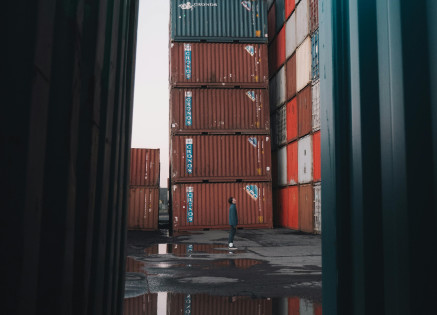Copyright © 2026 lmitac.com All Rights Reserved. Contact - Terms and Conditions - Privacy Policy - Quality Policy - Become an instructor - Vacancies - Sitemap
London Maritime Academy is a trade name for London Premier Groupversion: 2.9.0
London Maritime Academy is a trade name for London Premier Group

Posted on : 9/20/2024, 9:56:50 PM
Last Update : 9/20/2024, 9:56:50 PM
The Southern Red Sea is a critical artery for global maritime trade, serving as a conduit for goods between Europe, Asia, and Africa. Recent escalations in Houthi militia attacks have raised alarms regarding the security and stability of this vital region. This article seeks to dissect the motivations behind these attacks and assess their impact on international shipping and supply chains.
The Houthi movement, originating from northern Yemen, has been engaged in a protracted conflict with the Yemeni government and a Saudi-led coalition since 2015. Historically, their control has extended to significant portions of Yemen, including coastlines along the Red Sea. The strategic location provides the Houthis a platform to exert control over one of the world's busiest maritime routes.
Several motives drive Houthi's actions in the southern Red Sea:
1. Leverage in Negotiations: By threatening international shipping lanes, the Houthis potentially gain leverage in negotiations with international stakeholders.
2. Economic Disruption: Attacks aimed at disrupting economic activities of their adversaries, particularly Saudi Arabia, and its allies.
3. Psychological Warfare: Instilling fear and projecting power can shift the regional power balance in their favor.
4. Retaliation: Reacting to Saudi-led coalition attacks and blockade efforts, claiming a support for the Palestinian cause and demanding the end of attacking civilians in Gaza by employing asymmetrical warfare tactics.
5. Propaganda: Demonstrating military capability to domestic and international audiences to bolster support and legitimacy.
The attacks have far-reaching consequences for global trade:
1. Increased Shipping Costs: Insurance premiums rise due to perceived risks, leading to higher costs for shipping companies and, eventually, consumers.
2. Route Alterations: Ships may be forced to take longer routes to avoid conflict zones, delaying cargo deliveries with higher turnaround costs.
3. Naval Escorts and Patrolling: Increased military presence from various nations to safeguard passage, adding operational complexities.
4. Economic Instability: Potential for global markets to react to disruptions, particularly for oil and gas shipments.

1. Disruption to Key Commodities: The Red Sea is a vital route for oil, gas, and manufactured goods. Any interruption has cascading effects on various industries globally.
2. Delays and Shortages: Logistic delays can result in product shortages and increased prices, affecting both producers and consumers worldwide.
3. Continued Vulnerability: Persistent instability cultivates an environment where supply chains remain susceptible to future disruptions triggering higher insurance premiums.
1. Regional Tensions: Escalations may deepen conflicts and rivalries, especially between Saudi Arabia, Iran (purported backer of Houthis), and other regional actors.
2. International Involvement: Historic strategic interests prompt international powers like the USA, EU, and China to involve themselves more directly, potentially militarizing the region further.
The increasing frequency and severity of Houthi attacks in the southern Red Sea pose significant threats to global shipping trade and international supply chains. Addressing these challenges requires concerted efforts involving regional cooperation, international diplomacy, and robust security mechanisms. Ensuring the stability of this essential maritime corridor is critical for maintaining global economic stability.